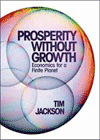Communities and Social Change: conceptual understandings and practical applications
Overall aims
To explore theoretical and intellectual conceptions of ‘community’ and social change from sociological literatures supported by insights from a range of empirical research studies.
Context
Community efforts to cut carbon dioxide (CO2) emissions hold the potential, in principle, to benefit from a greater emphasis on collective expediency; that is, accomplishing more by acting together rather than alone, with broader motivational impacts in terms of encouraging positive beliefs and actions. While the concept of ‘community’ has been an enduring and recurring theme in modern social science, it nevertheless remains elusive and somewhat intractable with regard to specific definition and meaning. A critical challenge for implementing programmes of prevention and intervention within communities revolves around how to arrive at an appropriate definition of ‘community’. Equally, it is important - particularly at a local policy level - to have clarity on concepts of social organisation in order to inform design of effective community engagement programmes.
Research questions and methods
How has the term ‘community’ been conceptualised in sociological literatures?
What are the key social organization concepts relevant to the progression of community-based engagement initiatives?
Does community-focused action hold the potential to be a potent force for social change?
What are its main opportunities and limitations?
To help answer these questions a substantial and wide-ranging review of literature was carried out, covering predominantly sociological articles from the 1960’s to the present day. Key areas of inquiry included social learning theory; social capital and social norms; community life and social relations; community development and social objectives; and community capacity and social organization. The review also drew on a series of empirical research studies focusing on the translation of the concepts described above into practical and collective environmental engagement initiatives at the local level.
Results
The review demonstrates that although defining the term ‘community’ is a persistent challenge, an appreciation of inter-related social organization concepts (including social capital, social learning and social norms) can be useful in providing a framework from which to develop carefully planned engagement strategies. This is in relation to ‘community’ itself and also the processes by which personal and social norms develop over time, and also the ways in which ‘information’ is individually and collectively processed. It is apparent that community focused action certainly has the potential to be a potent force for social change. Of crucial importance is the nature of how that prospective change is encouraged and facilitated. Approaches to engaging communities need practical and pragmatic elements to be built in from the outset; information intensive interventions alone are unlikely to be effective as experience has demonstrated. Coordination of individual and collective behaviour change towards more sustainable patterns of living inevitably requires a policy mix that incorporates appropriate incentives and disincentives. Trust and knowledge are critical in the diffusion of social signals in promotion of changed behaviour patterns.
Implications
Implications The work highlights the importance of appreciating the different social configurations and inter-community diversity that engagement programmes seek to influence. It is argued that the techniques and approaches adopted will need to be designed accordingly in order to attract the interest and involvement of the community members with whom the project management team aim to connect.
Outputs
Peters, M 2010. Community engagement and social organization: introducing concepts, policy and practical applications. In M Peters, S Fudge and T Jackson (Eds) Low Carbon Communities: imaginative approaches to combating climate change locally. Cheltenham: Edward Elgar.
Peters, M and T Jackson 2008. Community action: a force for social change? Some conceptual observations. RESOLVE Working Paper Series 01-08. Guildford: University of Surrey.
Peters, M 2009. Community action on climate change: linking local government responses in the UK to concepts of social organisation. 5th World Environmental Education Congress, 10-14 May 2009, Montreal, Quebec, Canada.
Peters, M 2009. Community engagement and education: key concepts, opportunities and challenges. RESOLVE Conference: Sustainable Lives? The challenges of low-carbon living in a changing economic climate, June 2009.





